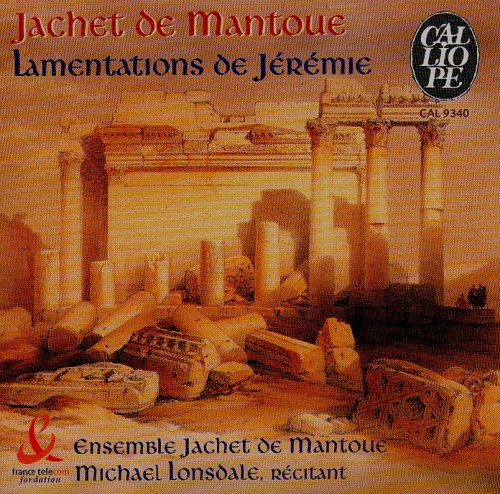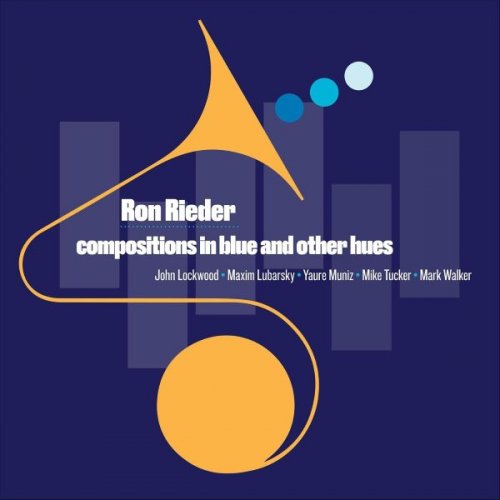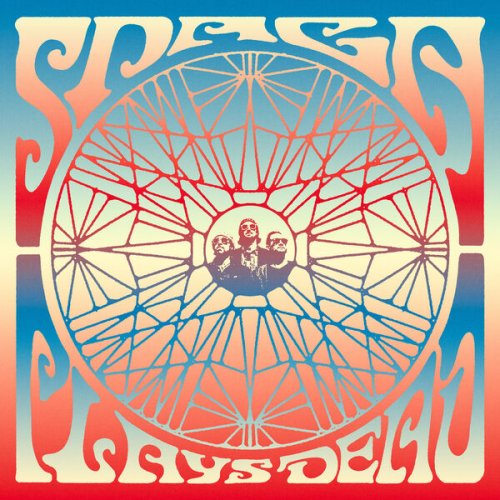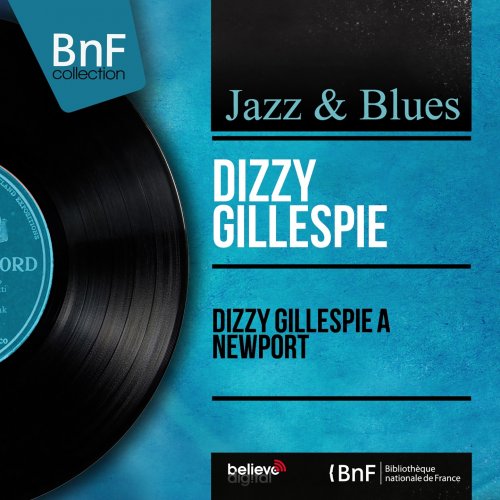Ensemble Jachet de Mantoue - Lamentations de Jeremie (2003)

Artist: Ensemble Jachet de Mantoue
Title: Lamentations de Jeremie
Year Of Release: 2003
Label: Calliope
Genre: Classical
Quality: FLAC (tracks + .cue, log, scans)
Total Time: 63:30 min
Total Size: 337 MB
WebSite: Album Preview
Tracklist:Title: Lamentations de Jeremie
Year Of Release: 2003
Label: Calliope
Genre: Classical
Quality: FLAC (tracks + .cue, log, scans)
Total Time: 63:30 min
Total Size: 337 MB
WebSite: Album Preview
Jeudi Saint
01. 1st Lecture - Texte
02. 1st Lecture - Chant
03. 2nd Lecture - Texte
04. 2nd Lecture - Chant
05. 3rd Lecture - Texte
06. 3rd Lecture - Chant
Vendredi Saint
07. 1st Lecture - Texte
08. 1st Lecture - Chant
09. 2nd Lecture - Texte
10. 2nd Lecture - Chant
11. 3rd Lecture - Texte
12. 3rd Lecture - Chant
Samedi Saint
13. 1st Lecture - Texte
14. 1st Lecture - Chant
15. 2nd Lecture - Texte
16. 2nd Lecture - Chant
17. 3rd Lecture - Texte
18. 3rd Lecture - Chant
Stumbling by chance across this recording, you could be forgiven for assuming that it probably represents yet another foray into long lost repertoire by an insignificant composer. In reality, however, Jacquet of Mantua (1483-1559) was actually one of the most distinguished composers of sacred polyphony in the generation between Josquin and Palestrina, with a vast output comprising 23 masses, over 100 motets and many other sacred works (including a St John Passion). Sadly, Jacquet's music is still virtually impossible to obtain on CD, a fact which makes this exquisite release even more special. If you are new to the names of this composer and this group, you are in for a treat! (n.b. for sound samples and full track listing details, see the French amazon site).
Established in 2000, Ensemble Jachet de Mantoue comprises five singers: Raoul le Chenadec (countertenor), Thierry Bréhu and Éric Raffard (tenors), James Gowings (baritone) and Philippe Roche (bass). As their name implies, they have a special affinity with the music of Jacquet of Mantua (listeners should also investigate their magnificent performance of Jacquet's Messe Anchor che col partire et motets à Notre Dame [Calliope CAL 9310]), although they have also released noteworthy recordings of other Renaissance composers, of which the Missa de Beata Virgine by Cristóbal de Morales (c.1500-1553) [Calliope CAL 9363] is a particularly fine example (although apparently unavailable in the US, it is listed on other amazon sites). Individually, the members of Ensemble Jachet de Mantoue have sung with several important early music ensembles - Diabolus in Musica, Ensemble Clément Janequin, La Chapelle Royale and Le Parlement de Musique amongst them. For this recording, they are joined by Michael Lonsdale, who narrates sections from the French translation of the Bible by Jacques Lefèvre d'Etaples ('La Sainte Bible en françoys', Antwerp, 1530).
As for Jacquet of Mantua himself, surprisingly little is known about him considering the importance of his output. His real name was Jacques Colebault, although he was known by a variety of names - Jachet, Jachetto, Iachettus or Giachetto (a fact which has occasionally resulted in the confusion between him and a few other composers, especially Jacquet de Berchem [c.1505-1567]). Most of Jacquet's life was spent in Mantua, where from 1526 he worked in the service of Cardinal Ercole Gonzaga, eventually as 'maestro di cappella' at the Cathedral of San Pietro (from 1534). The choir there was relatively large (15 singers) in comparison with the norm of 12 singers found elsewhere in northern Italian cathedrals, although surviving information is insufficient to determine exactly how the voices were distributed (even if we know something of their duties and where they performed, etc. - for more information on this topic, see Iain Fenlon, 'Music and Patronage in Sixteenth-century Mantua', Cambridge, 1980). Given what is known about performance practice in other parts of Italy, though, Ensemble Jachet de Mantoue's decision to use solo voices (OVPP) seems entirely appropriate here, especially for a setting of the Lamentations. Like much of his output, this work (published posthumously in 1567) is dominated by smoothly arched melodies and a careful balance of all parts, reminiscent of the music of his predecessor Jean Mouton (c.1459-1522) as well as a few other settings of the Lamentations text (like the one by Elzéar Genet Carpentras [c.1470-1548] in Cappella Sistina MS 163).
It is difficult to exaggerate the importance of this release. If you are passionate about Renaissance polyphony, this is a recording you will not want to miss! -- Maddy Evil
Established in 2000, Ensemble Jachet de Mantoue comprises five singers: Raoul le Chenadec (countertenor), Thierry Bréhu and Éric Raffard (tenors), James Gowings (baritone) and Philippe Roche (bass). As their name implies, they have a special affinity with the music of Jacquet of Mantua (listeners should also investigate their magnificent performance of Jacquet's Messe Anchor che col partire et motets à Notre Dame [Calliope CAL 9310]), although they have also released noteworthy recordings of other Renaissance composers, of which the Missa de Beata Virgine by Cristóbal de Morales (c.1500-1553) [Calliope CAL 9363] is a particularly fine example (although apparently unavailable in the US, it is listed on other amazon sites). Individually, the members of Ensemble Jachet de Mantoue have sung with several important early music ensembles - Diabolus in Musica, Ensemble Clément Janequin, La Chapelle Royale and Le Parlement de Musique amongst them. For this recording, they are joined by Michael Lonsdale, who narrates sections from the French translation of the Bible by Jacques Lefèvre d'Etaples ('La Sainte Bible en françoys', Antwerp, 1530).
As for Jacquet of Mantua himself, surprisingly little is known about him considering the importance of his output. His real name was Jacques Colebault, although he was known by a variety of names - Jachet, Jachetto, Iachettus or Giachetto (a fact which has occasionally resulted in the confusion between him and a few other composers, especially Jacquet de Berchem [c.1505-1567]). Most of Jacquet's life was spent in Mantua, where from 1526 he worked in the service of Cardinal Ercole Gonzaga, eventually as 'maestro di cappella' at the Cathedral of San Pietro (from 1534). The choir there was relatively large (15 singers) in comparison with the norm of 12 singers found elsewhere in northern Italian cathedrals, although surviving information is insufficient to determine exactly how the voices were distributed (even if we know something of their duties and where they performed, etc. - for more information on this topic, see Iain Fenlon, 'Music and Patronage in Sixteenth-century Mantua', Cambridge, 1980). Given what is known about performance practice in other parts of Italy, though, Ensemble Jachet de Mantoue's decision to use solo voices (OVPP) seems entirely appropriate here, especially for a setting of the Lamentations. Like much of his output, this work (published posthumously in 1567) is dominated by smoothly arched melodies and a careful balance of all parts, reminiscent of the music of his predecessor Jean Mouton (c.1459-1522) as well as a few other settings of the Lamentations text (like the one by Elzéar Genet Carpentras [c.1470-1548] in Cappella Sistina MS 163).
It is difficult to exaggerate the importance of this release. If you are passionate about Renaissance polyphony, this is a recording you will not want to miss! -- Maddy Evil


![NOHMI - Brightness & Darkness (2026) [Hi-Res] NOHMI - Brightness & Darkness (2026) [Hi-Res]](https://www.dibpic.com/uploads/posts/2026-01/1768922635_folder.jpg)





